Scientific Editorial Committee

ISSN 3035-5265
Inclusion and Eco-Social Justice
https://inclusione-e-giustizia-eco-sociale.unipd-centrodirittiumani.it/
Elisabetta Camussi | elisabetta.camussi@unimib.it
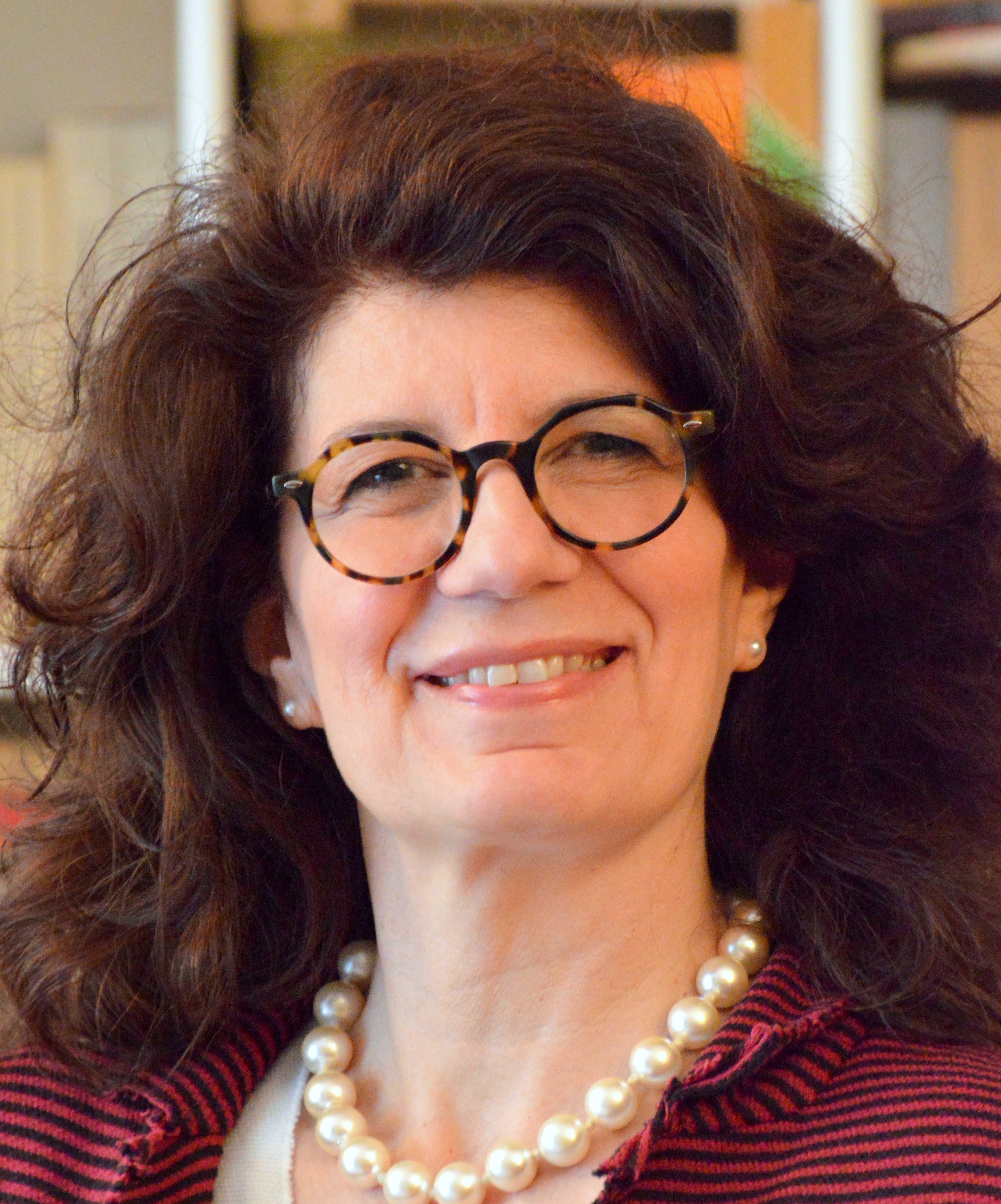
Elisabetta Camussi, psychologist, Ph.D., is Associate Professor of Social Psychology at the Department of Psychology, University of Milano-Bicocca, where she teaches Social Psychology and the Psychology of Differences and Inequalities. For many years, she has been engaged in research, publications, and the design of interventions and services focusing on gender issues, equal opportunities, community-based welfare, career guidance psychology, and Life Design. She is a member of the “Committee of Experts on Economic and Social Matters”, chaired by Vittorio Colao during the pandemic, where she coordinated the working group on “Individuals, Families and Society”. In 2021, she was awarded the title of Officer of the Order of Merit of the Italian Republic by the President of the Republic. She served as a member of the Cultural Change Commission of Women20 within the G20 framework. She is currently Vice-President of the Italian Society for Vocational Guidance (SIO) and scientific coordinator of the Life Design Psy Lab at Milano-Bicocca. She has also worked as a columnist for the Italian newspaper “La Repubblica”. Since 2022, she has been President of the Adriano Ossicini Foundation for the Psychological Profession (www.fondazioneossicini.it), the research and study centre of the National Council of the Order of Psychologists.
Luigi Michele Coppola | luigi.coppola@unipd.it

Luigi Michele Coppola graduated in Veterinary Medicine from the University of Bologna in 1994 and qualified to practise as a veterinarian in 1995. Conducted research on hip dysplasia in dogs, in collaboration with the Italian Association of Small Animal Veterinarians. Speaker on topics related to radiological aspects and common errors in performing hip dysplasia radiographs in dogs. Held a "Young Talents" contract at the Department of Veterinary Clinical Sciences, University of Padua. Since 1 July 2004, has been serving as a University Researcher at the Department of Clinical Sciences, University of Padua. Has a particular interest in and conducts research on audiometry of small animals. Carries out endoscopic investigations into gastroenterological and respiratory conditions in small animals and exotic animals. Also involved in the study of the major respiratory diseases, particularly of the natural pouches of horses. Teaches Principles of Diagnostic Imaging and Endoscopy within the Integrated Course of Medical Semiotics and Clinical Methodology, as well as Clinical Aspects of Emerging Zoonoses in the Specialisation School of Animal Health, Breeding and Livestock Production". Serves as an Aggregate Professor and conducts clinical activity at the University Veterinary Teaching Hospital (OVUD).
Diana Crestan | info@dianacrestan.com

Diana Crestan is a self-taught photographer, best known for her images of nature and both natural and historical landscapes.
She developed a passion for photographic art at a very young age and began her career as a wedding photographer. However, her deep love for nature eventually drew her towards nature photography.
She draws particular inspiration from the work of great contemporary American landscape photographers. She believes that nature photography can play an important role in raising awareness of environmental issues—showing not only the beauty that still exists on our planet but also the challenges it faces.
She is a member of the Italian Nature Photographers Association (AFNI), where she served on the Board of Directors and Head of the FVG Section for 11 years. She is currently President of the BioArt Visual Association, which organises the international nature photography competition BioPhotoContest and the BioPhotoFestival, both of which promote nature photography and environmental themes.
In recent years, she has focused on creating multivisions, videos composed of images that fade into one another in synchrony with music. She collaborates with the publishing house Daniele Marson Editore, which specialises in books on nature photography, and with various photographic agencies.
Massimo De Marchi | maximo.demarchi@gmail.com

Massimo De Marchi is an Associate Professor of Geography at the Department of Civil, Environmental and Architectural Engineering at the University of Padua. He is the Academic Coordinator of the Jean Monnet Center of Excellence on Climate Justice and the Director of the Advanced Master in GIScience and Unmanned Systems for the Integrated Management of Territory and Natural Resources (EQF8). He also coordinates the Erasmus Mundus International Joint Master Programme on Climate Change and Diversity, Sustainable Territorial Development (CCD-STeDe, EQF7), and serves as Deputy Director of the international professional master’s programme Climate Change and Sustainable Agro-ecosystems, offered in collaboration with the Universidad Andina Simón Bolívar, Quito, Ecuador (EQF 7). His research focuses on climate justice and just transition from fossil fuels, participatory processes, management of environmental conflicts in complex territories, GIScience and citizen science.
Ciro De Vincenzo | ciro.devincenzo@unipd.it

He obtained a PhD in Social Sciences in 2022, and since 2024, he has been enrolled in a four-year specialisation course in Gestalt psychotherapy.
He has been practising as a psychologist since 2018 in both clinical and community contexts, adopting a social, cultural and critical theoretical-methodological approach. He also works professionally in training and supervision assignments. His areas of practice include social marginalisation, terminal illness, health promotion within social and healthcare services, and psychological distress. In addition, he is an adjunct professor at the University of Padua, where he teaches Community Psychology. He also holds a research grant in the field of mental health and well-being of veterinary professionals, with a focus on grief related to the loss of a companion animal. His main research interests include contemporary migrations, terminality and end-of-life, animal grief, social education, and cultural and creative approaches to social transformations.
Laura Delfino | delfino@cooperativasinergie.it

Laura Delfino is the mother of two children, Francesco and Viola. She is a psychologist and behaviour analyst who has devoted her entire professional life to autism. She began her career in 2002 at Cascina Rossago in Pavia, the first residential farm community in Italy for autistic individuals. In 2009, she returned to Mantua, the city where she grew up, to help establish an autism unit within a residential facility for people with disabilities (Rossonano). Since 2016, she has served as the technical lead at Spazio Autismo, a specialist practice where she developed an experimental model of care. In 2019, she became a Sentinel of Inclusion and has since been an active advocate for the rights of people with disabilities, with a particular focus on autistic individuals. In 2022, she became CEO of SbrisolAut, a profit company that produces and sells sbrisolone biscuits made by autistic pastry chefs. Her motto is "love and compassion": technique and professionalism must never come at the expense of love and a sense of shared humanity—regardless of the differences that make us unique.
Maria Teresa Dolso | mariateresa.dolso@unipd.it
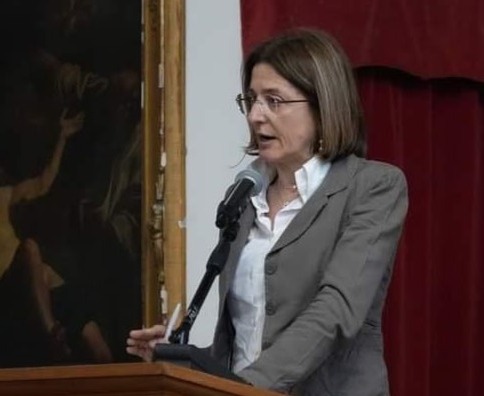
Maria Teresa Dolso is a researcher in Medieval History (scientific disciplinary sector M-STO/01) at the Department of Cultural Heritage of the University of Padua. Her research interests focus on late medieval religious history with particular reference to the Mendicant Orders and especially the Order of Friars Minor, whose thirteenth and fourteenth-century history and hagiographic and chronicle sources have been the subject of her work. She is a member of the Board of Directors of the International Society of Franciscan Studies; of the Interuniversity Center for Franciscan Studies (as representative of the University of Padua); of the Antonian Studies Center; of the Interdepartmental Research Center for Medieval Philosophy "Carlo Giacon" (CIRFiM); of the Interdepartmental Center for Historical Studies on Christianity (CISC); of the Italian Society for Medieval History (Sismed). She is also a member of the Editorial Board of the journal "Quaderni di storia religiosa" (Il Mulino); of the Scientific Committee of the Series "Medioevo francescano" (CISAM) and the journal "Franciscana" (CISAM); of the Scientific Council of the journal "Il Santo. Rivista francescana di storia dottrina arte"; and is a member of the scientific council for the National Edition project of Franciscan Sources (funded by Mur). She is a member of the Doctoral College in Archaeological, Art Historical and Historical Sciences of the University of Verona. She obtained PRIN 2022 funding with decree of 25/05/2023 as head of the Padua unit, together with the Universities of Verona (P.I.) and Udine, focusing on the theme "Differently" Mendicant: voluntary poverty and begging between religious inspiration and institutional realities. Over the years, she has participated in numerous international conferences in Italy and abroad and many seminars and scientific initiatives and has also been a member of the scientific committee for the organisation of some international conferences (including Mendicant Friars in itinere (13th-14th centuries), Assisi-Magione, 17-19 October 2019 and Louis the Great Rex Hungariae. Wars, arts and mobility between Padua, Buda and Europe at the time of the Carraresi, Padua, 22-24 September 2021). She has more than 50 scientific publications to her credit, including three monographs and numerous essays in A-class journals. She holds the national scientific qualification in the sector of History of Christianity (M-STO/07), valid from 25/01/2022 to 25/01/2031.
Maria Anna Donati | mariaanna.donati@unifi.it

Maria Anna Donati is a Researcher in Psychometrics at the NEUROFARBA Department of the University of Florence. She teaches in degree courses at the School of Psychology and the School of Human Health Sciences, as well as in various PhD courses and the second-level Master's course in Clinical Practice and Assessment of Behavioural Addictions at the University of Florence. Her research interests focus on the construction and adaptation of psychometric instruments, as well as the development and evaluation of prevention interventions, with particular emphasis on behavioral addictions. She is a member of the Psychometrics Laboratory team, through which she takes part in various research and intervention projects that involve collaboration with national and international researchers, and also with territorial services that deal with the diagnosis and assessment of addictive behaviors. She serves as a reviewer for over thirty international journals and is a member of the Editorial Board of the Journal of Behavioral Decision Making. She is the author/co-author of approximately 60 scientific articles in international journals. She is a member of the International Society for the Study of Behavioral Addictions (ISSBA), the European Association for the Study of Gambling (EASG), the Italian Association of Psychology (AIP), and the Italian Society for Guidance (SIO). She has been appointed as a member of the NEUROFARBA Department of Excellence 2023-2027 Working Group, within which she contributed to the organisation of a public conference series entitled "One health for all, all for health!" and to the development and evaluation of a training course on communication for the department’s clinical and hospital staff. She is a member of the University Commission on Communication and Public Engagement. She is also registered with the Order of Psychologists of the Tuscany Region (n. 6235).
Enrico Ferri | enricoferri614@gmail.com

Enrico Ferri graduated in Political Science from the University of Padua. He is a journalist who worked at "Il Mattino di Padova" from 1980 to 2010, serving as section editor across various departments. For 15 years, he was actively involved in the National Federation of Italian Press (FNSI), first as General Secretary of Veneto, then as National Deputy Secretary. For the National Order of Journalists, he served as a commissioner at the state examination for qualification to the journalistic profession. He has also been a speaker at professional development courses on the national journalism employment contract, as well as on key issues in journalism related to migration policies, hate speech, "post-truth", incitement to hatred, and the Rome Charter. For INPGI (National Institute of Social Security for Italian Journalists), he was on the Board of Statutory Auditors, where he worked until 2016. He also collaborated with the Veneto Section of the Article 21 Association. He has also contributed as an author on the website www.articolo21.org. He collaborated with the "Veneto Committee for Freedom for Assange". From 2017 to 2021, he contributed to the cultural initiatives of the "Thinking Headquarters" of Civic Coalition for Padua. In 2020, he taught at the High School "Telling the truth" directed by Professor Laura Nota with delegation for Inclusion and Disability at the University of Padua. He contributed as an author in the drafting of the volumes "The passion for truth" edited by Laura Nota (Franco Angeli 2020) and "Taking care of the true" (Edizioni Nuova dimensione) edited by Monica Andolfatto, Laura Nota, Roberto Reale. He currently collaborates with the Continuous Training Association, which has a ten-year history in Padua and collaborates with teachers, most of whom come from academia.
Ombretta Gaggi | gaggi@math.unipd.it
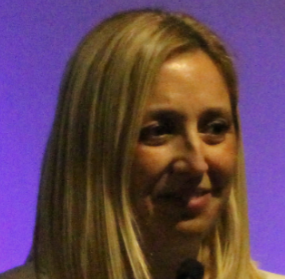
Ombretta Gaggi has been an Associate Professor of Computer Science at the Mathematics Department of the University of Padua since 2020, having previously served as a researcher at the same university since 2006. She obtained her degree in Information Sciences at Ca' Foscari University of Venice in December 1998, and her PhD in 2003 at the University of Bologna. She has been involved in the accessibility topic since 2008, initially as a lecturer of the Web Technologies course and later as part of her research interest, also publishing scientific articles on the subject. She organises the Captivating Accessible contest, which rewards the most aesthetically pleasing and accessible website. She is the editor of two international journals, has published numerous research papers.
Giuseppe Giulietti | giuseppegiulietti@yahoo.it

Giuseppe Giulietti is journalist and trade unionist. From 2015 to 2023, he served as President of the National Federation of the Italian Press (FNSI), having been elected for two consecutive terms. He was a journalist with RAI, serving as editor of the RAI office in Venice from 1979, and held the position of Secretary of the RAI journalists’ union (Usigrai). He served as a Member of Parliament from 1994 to 2013. Today, in addition to being its founder, he is the spokesperson for the Article21 Association. He has always been committed to the pursuit of truth and justice, and to the defence of press freedom—causes for which he is recognised as a leading figure not only nationally, but also beyond. He is regarded as a respected and authoritative voice, as well as an active and inclusive advocate. He maintains a blog on the website of Il Fatto Quotidiano.
Giampiero Griffo | giambatman1@gmail.com

Giampiero Emilio Aristide Griffo, a human rights defender with a degree in Philosophy and training in the field of law, is Co-director of the Center for Governmentality and Disability Studies Robert Castel (CeRC) of the "Suor Orsola Benincasa" University of Naples and of the international journal Minority Reports. Active in the Association for the Defense of Human Rights of People with Disabilities since 1972–at local, national and international levels, he is a member of the World Council of Disabled People's International, a board member of the European Disability Forum, a member of the Italian Federation for Overcoming Handicap and President of the Italian Network Disability and Development. An expert of the Bioethics Committee of the Republic of San Marino, he has collaborated to European projects and international cooperation, publishing articles, volumes, and research at national and international levels in four languages. He served as an advisor to the Italian delegation involved in drafting the United Nations Convention on the Rights of Persons with Disabilities. He was also the coordinator of the Technical-Scientific Committee of the National Observatory on the Condition of People with Disabilities, and a member of the task force for Phase 2 of SAR-COV2 emergency under the Presidency of the Council of Ministers. He is a member of the Observatory on Accessibility and Inclusion of the National Council of Economy and Labor, CNEL. He was awarded the title of Commander of the Italian Republic by President Mattarella.
Lelio Iapadre | lelio.iapadre@gmail.com

Lelio Iapadre is the President of the HPC4DR Consortium (High-Performance Computing for Disaster Resilience), based at the University of L'Aquila, where he served as a Professor of Applied Economics and Pro-Rector Delegate for Sustainable Development. He is an Associate Research Fellow at the United Nations University Institute on Comparative Regional Integration Studies (UNU-CRIS) in Bruges, and Adjunct Professor of Trade and International Finance at SciencesPo, Menton. He is a member of the Interdisciplinary Evaluation Expert Group (GEV) for the VQR 2020-2024 of the National Agency for the Evaluation of the University and Research System (ANVUR). He is also affiliated with the Manlio Rossi-Doria Center for Economic and Social Research of the University of Roma Tre and serves asScientific Advisor of the Centro Europa Ricerche (CER) in Rome. He is a member of the Assembly of the Forum on Inequalities and Diversity (ForumDD). He has previously taught at the University of Rome "Sapienza" and Johns Hopkins University, SAIS Bologna. He has worked as an economist at the National Institute for Foreign Trade (ICE) and as an advisor to the Minister of Foreign Trade. He has also served as a consultant for Istat, Svimez, the Bangladesh Institute for Development Studies, and various international institutions, including the European Commission, the OECD, UNCTAD, UNIDO and the World Bank Institute. His research interests focus on various aspects of international economic integration, with particular emphasis on the relationship between globalisation, innovation and local development.
Claudia Lambini | lambini.cla@gmail.com
Claudia Lambini is an architect and teacher. She graduated from the I.U.A.V. University of Venice, specialising in Architecture and Sustainability, with a thesis focused on Integrated Passive Design Applied to A Design Proposal for the Expansion of the Australian City of Darwin. Thanks to mobility programs and European internships, she had the valuable opportunity to study and work abroad. These experiences allowed her to design and grow as a professional in extremely different contexts and explore approaches, tools and design strategies for the development of environmentally sustainable architectures.
Over the years, she has continued to develop her professional practice, delving into various themes, including Universal Design. This innovative design approach is distinguished by its ability to create urban and architectural spaces that are accessible and inclusive for all. Furthermore, it promotes environmental sustainability, demonstrating that functionality and equity can coexist.
To enrich this path, she also began teaching in lower secondary school. opportunity to observe the daily the use of school spaces, the specific needs of various users, and the impact these spaces have on students, staff, and teaching activities has proved to be a fundamental experience in exploring the potential of inclusive architecture. This experience has enabled her to better understand how a carefully designed environment can positively influence the learning and well-being of all students, contributing to creation of a more cohesive, integrated and environmentally sustainable community. She intends to continue her work and research integrating Universal Design not only in professional practice, but also into her role as an educator, with the aim of raising awareness among new generations about the importance of accessible and sustainable design.
Alberto Lanzavecchia | alberto.lanzavecchia@unipd.it

Alberto Lanzavecchia graduated in Business Economics from the University of Parma, MSc in Financial Management from the University of London-CeFiMS and PhD in Markets and Financial Intermediaries from the University of Bologna.
He gained professional experience in corporate banking and management consulting before dedicating himself to research and university teaching in the field of ethical and sustainable finance. He coordinates the PhD program in Human Rights, Society and Multi-level Governance and the summer schools of the University Center for Human Rights.
He collaborates with ethical banks and third sector organisations to promote human rights, civic education, and international cooperation for sustainable development.
Ernesto Lodi | elodi@uniss.it

Ernesto Lodi is a psychologist and psychotherapist with a PhD in Guidance Sciences. He is a researcher in Social Psychology Course at the Department of Humanities and Social Sciences of the University of Sassari, where he teaches community psychology, positive psychology, quality of life, and psychosocial well-being.
At the University of Sassari, he is the Didactic Coordinator of the First Level Master's in Restorative Justice and Mediation for the Well-being of People and Communities and research referent for the Team of restorative justice practices and the University Psychological Counseling Service.
He is an honorary judge at the Juvenile Court of Sassari, an ordinary member of the EFRJ-European Forum for Restorative Justice, and a member of the Board of Directors of SIO-Italian Society for Guidance.
His research initially focused on issues related to counseling and the development of life and career trajectories of people, particularly for individuals in situations of social vulnerability (minors and adults who have come into contact with the justice system) and the promotion of quality of life in educational and work contexts. Subsequently, his work has focused on issues related to legal psychology and restorative justice, where he has had the opportunity to incorporate the theoretical and research contributions developed by Prof. Patrizia Patrizi. His current research focuses on the relationship between variables in positive psychology and well-being in life, educational, and work contexts. He is also involved in various research-intervention projects aimed at supporting individuals in situations of risk and social vulnerability. Specifically, his studies focus on the construct of courage and on themes related to restorative justice.
Eleonora Lombardo | eleonora.lombardo@unipd.it

Eleonora Lombardo is a researcher in the History of Christianity at the Department of Cultural Heritage of the University of Padua.
After completing her PhD in History, specialisation in the History of Christianity and Churches, she held a postdoctoral fellowship from the Fundação para Ciência e Tecnologia de Portugal (FCT), working on two projects related to medieval preaching. These were carried out between the Instituto de Estudos medievais - Faculdade de Ciencias Humanas e Sociais of the Universidade Nova de Lisboa, the Instituto de Filosofia of the Universidade do Porto and the Centro de Investigação Transdisciplinar "Cultura, Espaço, Memoria" of the same University. From 2016 to 2019, she was a core member of the international project Critical Edition and Study of the Works Attributed to Petrus Hispanus (FCT PTDC/MHC-FIL/0216/2014), and Principal Investigator of the transnational project Europa em vernáculo: A expansão das línguas vernáculas na periferia do mundo latino, no final da Idade Média e inicio da Idade Moderna. Contextos e ideias (FCT/483/15/91/2019).
Between 2020 and 2021, she was awarded two Seals of Excellence for postdoctoral Marie Skłodowska-Curie projects, and she is currently involved in the PNRR - Young Researchers project POBIMA:Preaching on Body and Wellbeing in the Middle Ages.
Since the beginning of her research career, Eleonora Lombardo has focused on the history of 13th and 14th century preaching and Franciscan history. She soon broadened her interests towards other mendicant orders, hagiography, and, above all, the relationship between homiletics and philosophical and theological culture. Her work is characterised by the research and edition of Latin texts from different European regions. She thus soon became a specialist in Franciscan and Dominican homiletics, recognised particularly at the international level, as well as a point of reference for the study of the work of St. Anthony of Padua and the devotion dedicated for him during the Middle Ages. She collaborates with numerous international research groups based at the institutions such as Université de la Sorbonne, the Université Lumiére Lyon 2, the IRHT in Paris, the Comenius University in Bratislava, the Portuguese universities Nova de Lisboa and Porto, the Universidade Catolica de Portugal, as well as being a member of numerous scientific societies in both historical and philosophical fields.
She is the author of the monograph Words and Writings to Build a sSaint: St. Anthony of the Friars Minor in Medieval Sermons (1232-1350) (Padua 2022), as well as numerious articles on sermonistics, especially from the 13th century.
Antonio Mollo | antonio.mollo@unipd.it

Antonio Mollo is a veterinarian (qualified in 1993) with a PhD in Bovine Clinic (1998), specialising in the study of reproductive issues in dairy cows.His research focuses on animal reproduction in both livestock and companion animals. He has a particular interest in reproduction control to increase production and to address the problem of overpopulation in some species. He teaches on the degree courses of Veterinary Medicine, Animal Sciences and Technologies and Veterinary Technical Assistance Sciences at the University of Padua. He has also taught abroad at several institutions, including the FMV, Universidade de Lisboa (PT); Faculty of Veterinary Medicine, Universidad Complutense Madrid (ES), Veteriner Fakultesi, Ankara Universitesi (TR); Veteriner Fakultesi, Ondokuz Mayis Universitesi (TR). He is currently Head of the Reproduction Operating Unit at the University Veterinary Teaching Hospital of the University of Padua and holds the position of Full Professor of Obstetrics and Reproductive Pathology.
Carola Pagliarin | carola.pagliarin@unipd.it

Carola Pagliarin holds a degree in law, a PhD, and is an Associate Professor of Administrative and Public Law in the Department of Public, International and Community Law at the University of Padua.
She teaches Elements of Public Accounting in the Master's Degree programme in Law at the Padua campus, and Public Contract Law in the Master's Degree programme in Law at the Treviso campus of the University of Padua.
For many years, she has served as the Inclusion Referent for her Department.
She is the author of publications in the fields of public, administrative, and constitutional law.
Mariassunta Piccinni | mariassunta.piccinni@unipd.it
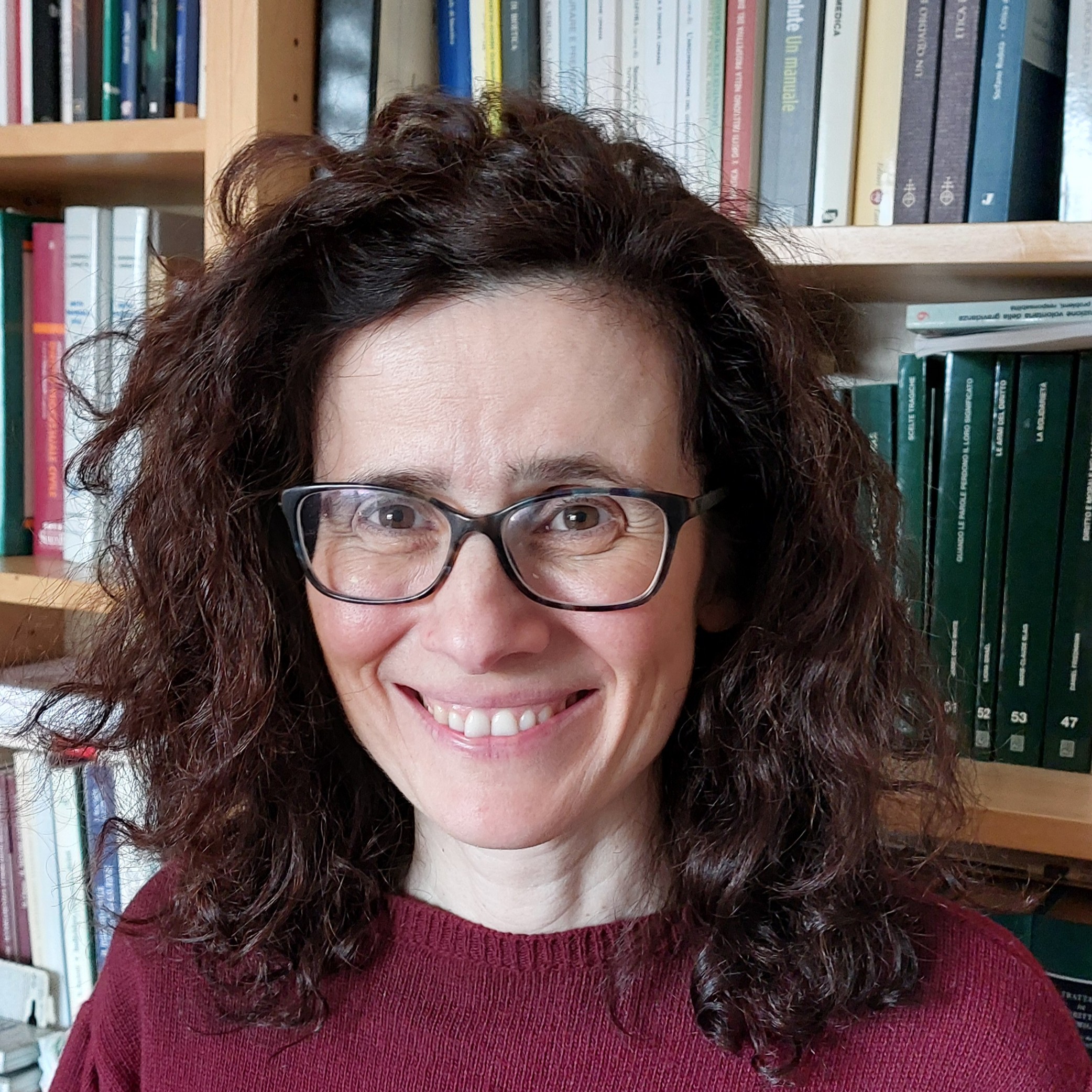
Mariassunta Piccinni is an Associate Professor of Private Law at the Department of Political Science, Law, and International Studies (SPGI, University of Padua). Her research activity particularly concerns private law, biolaw, and the right to health, with attention to the protection of the rights of people in vulnerable conditions, starting from minors and adults who are wholly or partly lacking in autonomy. She teaches Institutions of Private Law and Biolaw. She is involved in post-university training, with special regard to care professions, as well as legal professions. She collaborates with several journals (including La Nuova giurisprudenza civile commentata, Rivista di Biodiritto-Biolaw Journal, and Responsabilità medica). She is the coordinator of the Observatory "For a gentle law in care relationships" at the University of Padua (www.dirittogentile.it). She is the author of numerous publications in the biolaw field and has collaborated in the drafting or revision of various documents promoted by scientific societies. From 2008 to 2012, she managed the scientific secretariat for the Treatise on Biolaw, directed by S. Rodotà and P. Zatti (six volumes, published between 2010 and 2012 by Giuffrè). More recently, she has edited the following volumes: A gentle law for the elderly person, Pisa, Pacini, 2024, pp. 1-343 (with A. Fusaro); Twenty years of support administration, in Nuova giur. civ. comm., issue 6 digital suppl., 2024, pp. 1-113 (with G. Carlesso); Shared care planning: for a gentle law and medicine, in Rivista di Biodiritto-Biolaw, spec. issue 1/2025, pp. 1-374 (with L. Busatta, L. Orsi, M. Tomasi, V. Zagonel).
Gabriella Salviulo | gabriella.salviulo@unipd.it

Gabriella Salviulo is a professor of Mineralogy at the Department of Geosciences, University of Padua.
During her academic career, she has carried out research activities relevant to different areas of mineralogy: crystal chemistry and structural crystallography of mineral families to identify relationships with the composition of host rocks; archaeometry studies with applications in the field of cultural heritage; characterisation of synthetic mineralogical phases for biomedical and environmental applications.
Gabriella Salviulo has taught Mineralogy to students of different degree courses, currently, she is responsible for the Mineralogy course for the three-year degree in Geological Sciences.
She has also held multiple institutional positions, among these the activity at the University Center for Human Rights "Antonio Papisca" stands out: member of the Board of Directors for the three years 2016-2019; Director for the three years 2019-2022; member of the Board of Directors 2022-present. As part of her activity at the Center, she has started a new line of research concerning the relationships between georesources, human rights, and climate change.
Francesca Spigarelli | francesca.spigarelli@unimc.it
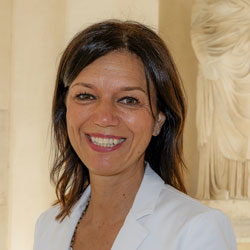
She is a Full Professor of Applied Economics and she carries out teaching activities at the Department of Law on topics of industrial economics, innovation economics and political economy. Her main research areas focuses on applied economics in relation to national and international industrial dynamics, with particular reference to the environmental and health sectors. She also investigates the social role of universities, policies supporting innovation ecosystems, sustainability, and the circular economy.She has been Director of the China Center at the University of Macerata since 2013. Among her current roles, she serves as the Italian Referent, appointed by the Ministry of University and Research, at the Strategic Programme Committee of the European Commission – sub-group Widening Participation and Strengthening the European Research Area, Horizon Europe (since 2020). She is a member of the Board of the Italian Society of Economics and Industrial Policy (SIEPI). She participates and has participated, as Coordinator or Principal Investigator, in numerous EU and national projects. She is an Expert Evaluator for the European Commission Horizon 2020 and Horizon Europe.
Carla Tonin | carla.tonin@unipd.it
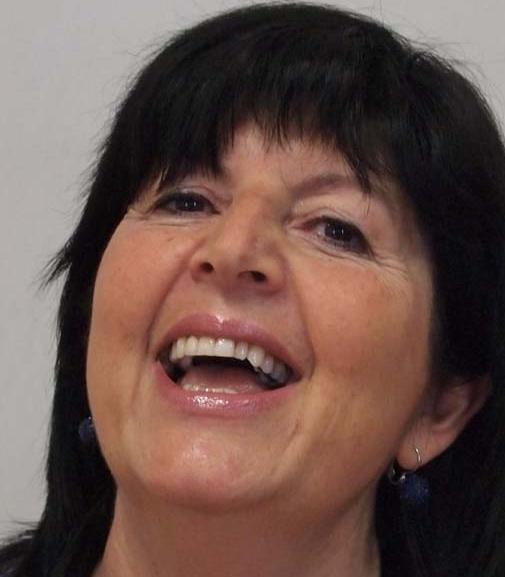
She graduated in Political Science and Law, and obtained a PhD in "Comparative Institutions and Policies" from the Faculty of Law at the "Aldo Moro" University of Bari. She has collaborated with the University Center for Disability and Inclusion of the University of Padua, working with the Rector's Delegate for Inclusion in building a network with the local community and associations on issues of inclusion, sustainability, and social justice. She collaborates with the La.R.I.O.S. Laboratory in activities promoting inclusion, sustainability, and social justice, with particular focus on organizing and tutoring for the Master's program "Inclusion and Social Innovation," the Advanced Course "Orientation and career counselling for inclusion, sustainability and social justice," and the Higher Education courses "The Passion for Truth," "Caring for the Truth," "Digital Literacy at School," and "Orientation at School: designing fair, inclusive and sustainable futures." As an expert in Comparative Constitutional Law, she has collaborated in research and teaching activities at the University of Cagliari. She is the author of publications on fundamental rights issues.
Damiano Tormen | damtormen@gmail.com

Damiano Tormen is a teacher, professional journalist, philologist, and enthusiast of classical culture. He obtained a Master's degree in Classical Literature from the University of Padua in 2008 and was a student of the advanced training course The Passion for Truth in 2021.
In his work as a journalist, he has collaborated with several Venetian newspapers and local radio stations. His reporting has primarily focused on white chronicle, trade union, politics and local administration. In 2019, he founded the Niq Multimedia agency, which manages the NewsInQuota information website. Since the same year, he has also been responsible for the press office of the Province of Belluno.
Valentina Viviani | vivianivalentina4@gmail.com

Valentina Viviani is a teacher of Spanish language and literature at a secondary school in Venice, and a professor of Spanish and Hispanic American culture and civilisation at CIELS (Faculty of Intercultural Linguistic Mediation) in Padua. For years, she has nurtured a deep interest in the Mapuche population, an interest that led her to Chile, where she was able to deepen her understanding of their culture and history.At the Raul Silva Henriquez University in Santiago de Chile, she focused her studies on the phenomenon of Mapuche religious syncretism. In January 2018, she met the writer Luis Sepulveda, with whom she developed a friendship and to whom she owes the project ducating on the Ethical Principles of Equality through a Re-reading of Luis Sepulveda's Works - Equality and Non-discrimination at the Center of Sustainable Development. She has participated, as a speaker, in conferences organised by universities such as Ca' Foscari and by international institutions such as the Amerindian. For some years, she has also collaborated, as a member, with CILM (International Center for migrant literature) of the University of Udine.
Maria Zallo | zallo.maria@icmatteoricci.edu.it

Maria Zallo is a kindergarten teacher at I.C. Matteo Ricci in Rome. She is the referent for the Sansotta branch and a member of the Continuity and Orientation Commission, and a tutor of the PNRR DM 65. She completed an advanced training course at the University of Padua titled Orientation at School: Designing Fair, Inclusive and Sustainable fFutures in the academic year 2022/2023. She has served as the referent for numerous projects, including the research/action project What's the Problem?, carried out under the scientific supervision of the Universities Roma Tre and Padua. The project took part in—and won—the competition The Inclusion I Would Like, organised by the University of Padua’s La.R.I.O.S. laboratory. Another important project, also awarded in a competition, was carried out during the 2023/2024 school year: For Us, We Would Like... to Work and Commit Ourselves to a Better World.

